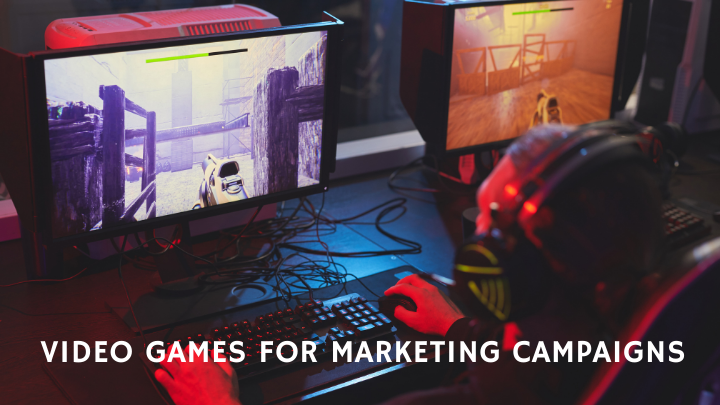
Check out list of successful video game marketing campaigns and detailed cast study regarding how brands use video games for marketing.
It seems that everyone nowadays is playing video games. During the pandemic, in order to stay sane while sheltering in place, consumers purchased video game consoles, particularly Nintendo Switch, to the point that, by April, retailers had run out of units to sell. Later that same year, it was the PlayStation 5 that everybody wanted but, for a while, could not get.
The whole world is playing Video Games:
In the United States, video game sales increased by 37% year over year, crossing the $3.3 billion mark by August 2020. Sales of mobile games also increased significantly in Japan. Other countries also saw a boost in the number of people who are interested in playing video games during the lockdowns.
People love video games. It has long been a hobby not just among children but of adults as well. They provide an escape from the real world which, if not monotonous and bland, is a cause of stress. In video games, people get to explore a fictional universe where they can be who they want to be.
Digital games, whether played through a video game console or a smartphone, is also a way to combat boredom. People choose to look at their smartphones to watch a video or play digital games whenever they are waiting in line at the grocery or during their long commute home. Brands have noticed that consumers love video games. So, to increase customer engagement, they are integrating video games into their marketing.
Creating Video Game Apps for Marketing:
Many brands nowadays have their own applications. It is a challenging strategy. A business has to work with a C# development outsourcing agency, or create their own in-house team of developers, in order to come up with usable software for fans. It is a strategy that has numerous benefits such as increased brand recall and visibility, both of which can turn to offline and online sales.
Launching a video game would not be easy, nor cheap, either. In the past couple of years, designer brands have dipped their toes in the video game industry by releasing their own video games as part of their marketing campaigns.
Louis Vuitton, for example, went retro and launched a 16-bit pixelated endless runner video game in 2019. In it, the character is seen running through the streets of New York City, jumping over trash cans and traffic ones to collect Louis Vuitton logos. At some point, players get to throw their virtual Louis Vuitton handbags in the air.
Meanwhile, Gucci has added a second for games in its own mobile app called Gucci Arcade. It offers several games, including a virtual pinball game called Gucci Lips and a tennis game called Ace. Aside from shopping, fashionistas can kill time without leaving the mobile app.
Some unexpected collaborations:
Consumers enjoy collaborations. It does not matter whether it is a collaboration between Blackpink and Selena Gomez or Starbucks and Spotify. People just enjoy seeing two things that exist independently work together to create something exciting. People love playing video games which connects with friends virtually.
The past several years have been all about collaborations, some of which are very unexpected. In 2019, Disney released an important marketing material and plot point for the then-upcoming movie Star Wars: Rise of Skywalker via the hit video game Fortnite. In the campaign, a returning character sent out a message heard by every player. Because the majority of those who play Fortnite are young people, Disney was obviously targeting children who may not have grown up watching Star Wars.
Meanwhile, the fashion brand Moschino tapped EA Games to introduce designer garments in The Sims 4. In the campaign, players got to wear virtual Moschino clothes and open new careers in the fashion industry. Offline, real clothing from the video game was also released for a limited time.
Brands benefit from collaborations because they can introduce their products and services to a wider audience. Basically, they can merge their respective clienteles and hope that it generates new leads for both sides. In the case of video games, brands look to Fortnite, The Sims, and other popular titles to remain relevant. These video games have a very loyal following that is willing to spend more to enhance their in-game experiences and express their appreciation of the franchise in the real world.
During the pandemic, sales across most markets were down except for video games which continue to enjoy increasing interest. Now that more people are playing video games than partying or shopping, brands will benefit from incorporating some fun into their marketing campaign.
